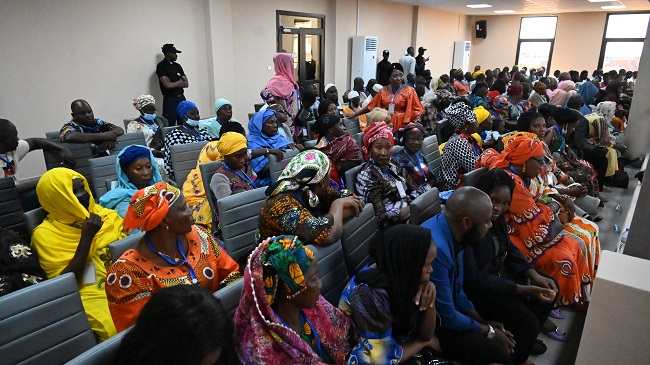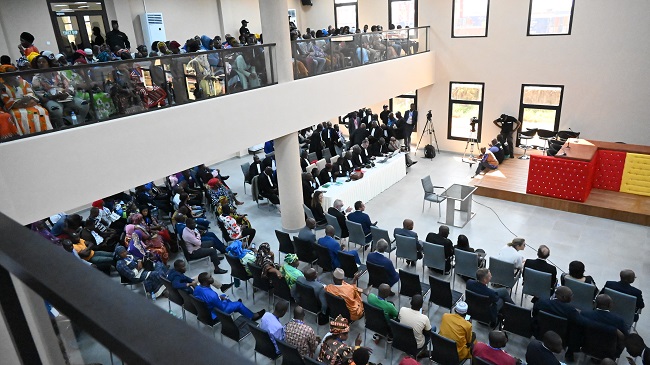A Guinean court has sentenced former dictator Moussa Dadis Camara to 20 years in prison for crimes against humanity, following a landmark trial over the 2009 massacre at a political rally. The court also handed down life sentences to seven other defendants.
The trial, which spanned nearly two years, was a significant moment for Guinea, with heightened security measures in place and families of victims closely watching. The court’s decision to classify the charges as crimes against humanity was a critical development.
The massacre occurred on September 28, 2009, when Camara’s presidential guard, along with soldiers, police, and militia, violently suppressed an opposition rally in Conakry. The brutal crackdown resulted in at least 156 deaths, hundreds of injuries, and the rape of 109 women, according to a UN inquiry.
Kadiatou Sow, a survivor of the rape and violence, expressed the importance of the trial, stating that she hoped for severe penalties for the perpetrators. Alfa Amadou DS Bah, the lead lawyer for the plaintiffs, emphasized that this trial marked the first time a former head of state and senior military officials had been convicted for such serious crimes, signaling a potential end to impunity in Guinea.
Human Rights Watch also praised the verdict, highlighting its significance in delivering justice and setting a precedent for holding high-level perpetrators accountable.


Dadis Camara, dressed in a traditional boubou, remained still as the verdict was read. He, along with 11 others, faced charges of murder, sexual violence, torture, abduction, and kidnapping. Camara consistently denied responsibility, attributing the acts to his subordinates.
The trial began on the anniversary of the massacre, captivating the nation through extensive media coverage. Defendants blamed each other during the proceedings, while around 100 victims shared their harrowing testimonies. The chief prosecutor had sought life sentences for Camara and the other defendants.
Defense attorneys argued that the reclassification of charges as crimes against humanity on the day of the verdict infringed on their right to a fair trial. Both the accused and the plaintiffs have 15 days to appeal, with the prosecutor’s office having two months to decide.
The trial has unfolded against a backdrop of repression in Guinea, with recent protests over the disappearance of pro-democracy activists causing unrest in Conakry. International organizations have lauded the trial as a groundbreaking step in addressing the impunity of Guinea’s security forces.


